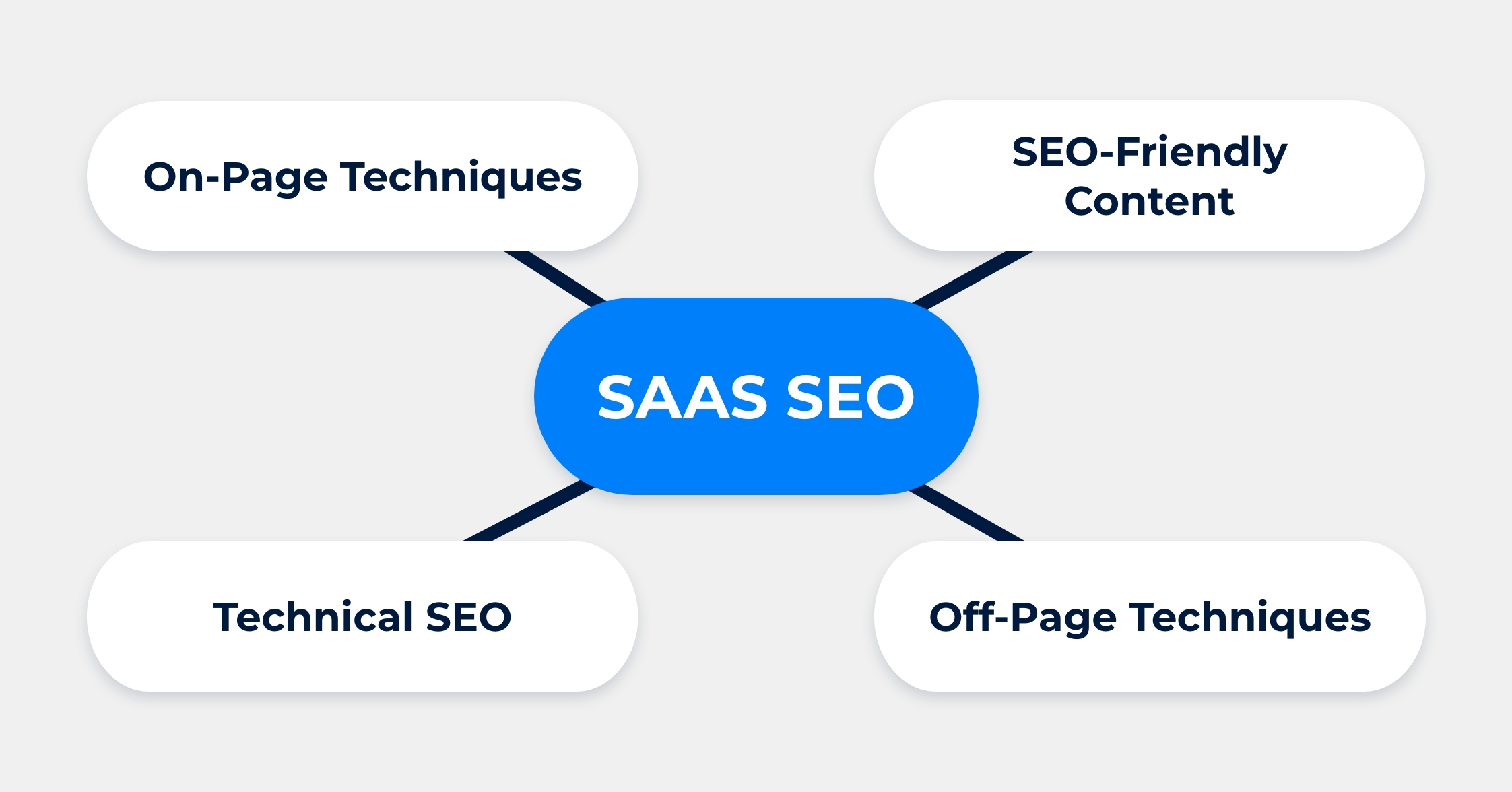We help to create visual strategies.
We want to hear from you. Let us
know how we can help.
Software-as-a-service (SaaS) solutions have become a major part of the daily routines of billions of individuals worldwide. As a SaaS company or an SEO services company for SaaS brands, it’s important to know that you’re playing in a field with many competitors, so your SEO strategy can make or break your business. With new software solutions popping up daily, achieving visibility in the market has become challenging. By mastering specific SEO tactics tailored to the unique dynamics of the SaaS industry, you can significantly enhance your visibility and drive sustainable organic growth. But what makes a winning SEO strategy for SaaS?
Why SEO for SaaS is Unique
Unlike traditional businesses, where transactions may occur instantly, SaaS companies operate on a model that requires ongoing engagement and subscription renewals. The subscription-based nature of these businesses means you're not just looking to attract customers—you need to keep them. For SaaS companies, the stakes are higher.
Unlike other sectors, a SaaS SEO strategy must engage potential customers over a longer period, shepherding them through a multi-stage decision-making process amidst global competition. Therefore, optimizing for search engines isn’t just about being seen—it’s about being seen by the right potential customers at the right stage in their decision-making process.
A Guide to Developing a Tailored SEO Strategy for SaaS
SEO strategies entail all the actions one might take to ensure their website becomes more visible to potential users on the internet. Creating an SEO strategy for a SaaS company begins with understanding the intricacies of its market and aligning SEO efforts with the customer journey—from awareness to consideration to decision. Here’s how you can craft a blueprint for SaaS SEO success:
- Market Analysis: Understand your competitive landscape, what your competitors are doing right, and where they lack.
- Customer Insights: Dive deep into understanding your customer persona, their challenges, needs, and behavior online.
- SEO Goals Setting: Define what success looks like for your SEO efforts, aligning them with broader business objectives.
Conducting Keyword Research for SaaS
Conducting keyword research for SaaS is crucial and extends beyond identifying popular terms. It’s about understanding your potential customers' specific language when seeking solutions like yours. Start by identifying core terms associated with your SaaS offerings. Then, look deeper with tools like Google Keyword Planner or Ahrefs to explore related keywords, including those capturing customer pain points and intended uses of your product.
Use Google’s autocomplete feature to uncover long-tail keywords that reflect specific user intents and questions. For example, typing “best project management tools for” might show autocomplete suggestions like “remote teams” or “agile software development,” indicating specific user needs or industry niches.
You can also analyze your competitors’ keyword strategies using Ahfefs or a similar tool. This will allow you to see what keywords they rank for and how they structure their content. This can help you identify gaps in their strategies and opportunities for your content, ensuring you match and surpass their SEO efforts. This approach ensures that your SEO strategy aligns closely with user search behaviors, driving more targeted traffic to your site.
A Look at Technical SEO for SaaS
Technical SEO for SaaS websites ensures that search engines can crawl, index, and render their web pages without hitches. It involves several key elements:
- Site Speed: A fast-loading site is crucial, not just for ranking but also for user experience.
- Mobile Optimization: With mobile-first indexing, having a mobile-responsive website is more important than ever.
- Secure Sockets Layer (SSL): Security is a top priority for Google and users; ensure your site is SSL certified.
- Structured Data: Using schema markup can help search engines understand your site content better and enhance your listings in search results.
Mistakes to Avoid for Your SaaS SEO Strategy
While developing an SEO strategy, SaaS companies frequently encounter several pitfalls:
- Neglecting Long-Tail Keywords: These might have lower search volumes but often carry higher intent and less competition.
- Ignoring User Experience: SEO isn’t just about pleasing search engines. A user-friendly site encourages longer visits and interactions, which search engines note favorably.
- Overlooking Analytics: Regularly review your analytics to understand what’s working and what isn’t. This will guide your ongoing SEO efforts and adjustments.
- Ineffective Link Building: One common oversight is not investing in a robust link-building strategy. Quality backlinks from reputable sites improve your site’s authority and drive referral traffic. Avoid accumulating low-quality links that can negatively impact your SEO performance. Focus on building relationships and creating valuable content that naturally attracts high-quality links.
At Dabaran, We Know SaaS SEO

At Dabaran, we specialize in crafting bespoke SEO strategies tailored specifically for SaaS companies. With a deep understanding of the unique challenges and opportunities in the SaaS industry, our team delivers results that matter. While renowned for SEO in Chicago, our expertise is not limited to any locale; we design and implement effective SEO strategies for clients globally.
We recognize that each SaaS business has its own distinct needs. That's why we don't offer cookie-cutter solutions. Instead, we listen to your objectives and design a customized strategy that aligns perfectly with your goals. Whether boosting your organic search rankings, increasing your website traffic, or converting leads into loyal customers, Dabaran has the expertise and experience to make it happen. Trust us to elevate your SaaS platform's performance in the competitive online world.


